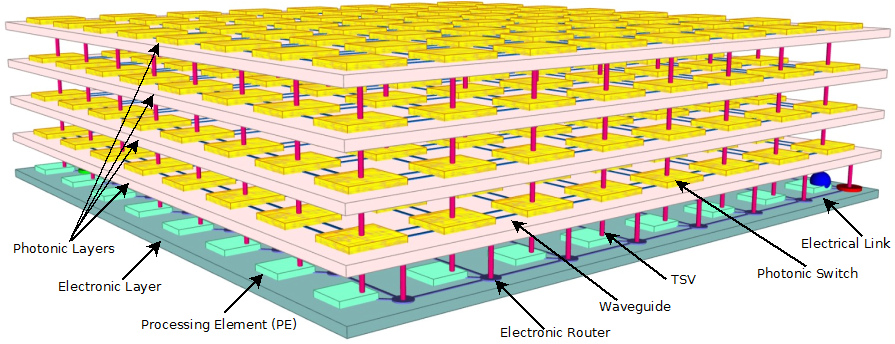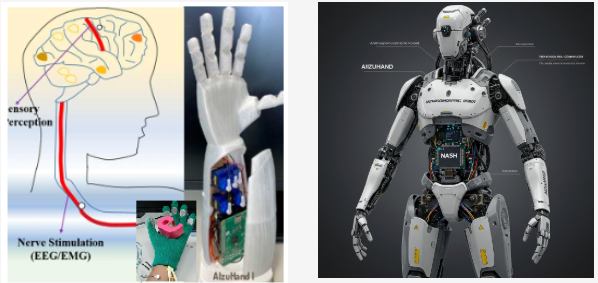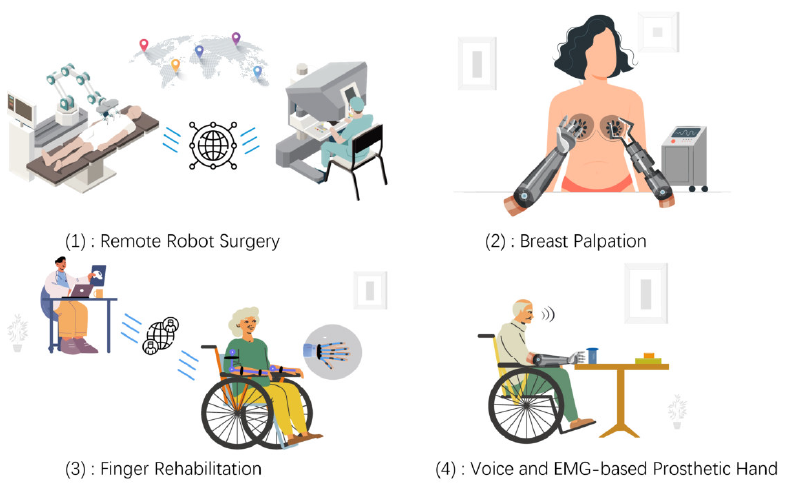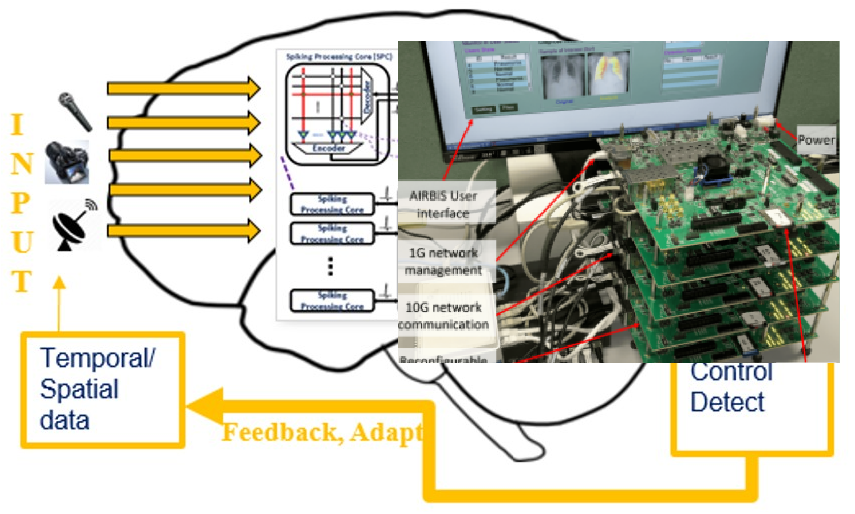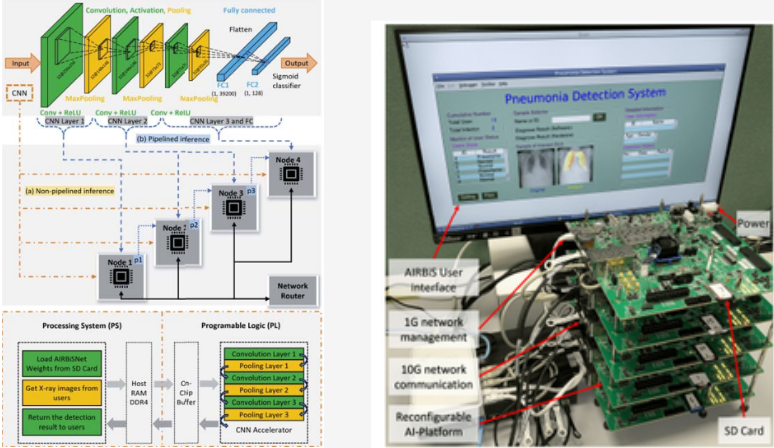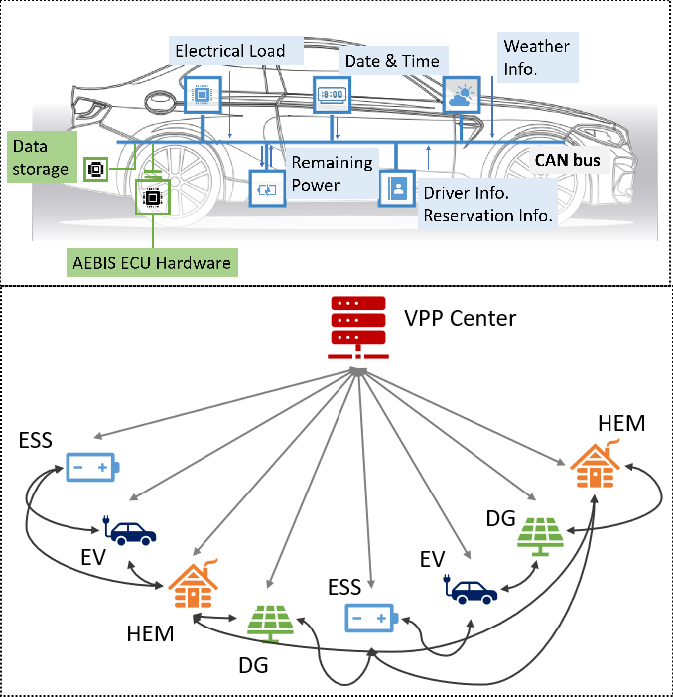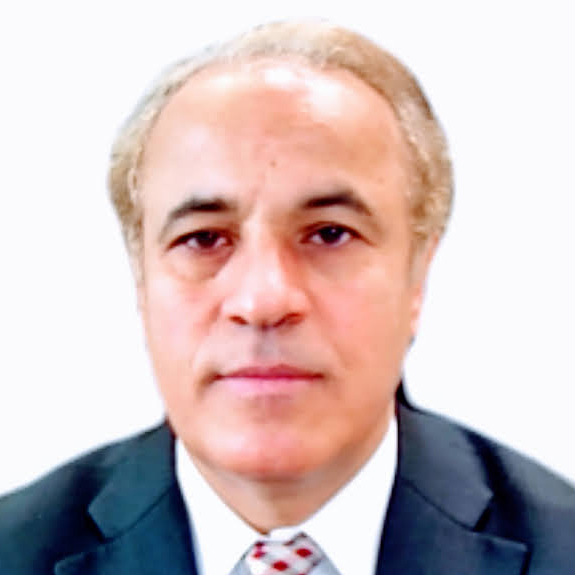
BEN ABDALLAH Abderazek
Professor, Regent (Dean of the Undergraduate school)
- Affiliation
- Department of Computer Science and Engineering/Division of Computer Engineering
- Title
- Professor, Regent (Dean of the Undergraduate school)
- benab@u-aizu.ac.jp
Education
- Courses - Undergraduate
- Computer Architecture, Undergraduate level, UoA, 2018–present
Introduction to Computer Systems, Undergraduate level, UoA, 2018–present
Parallel Computer Systems, Undergraduate level, UoA, 2018–present
Computer System Engineering, UoA, 2008–2018
Embedded Systems, UoA, 2008–2016
Logic Circuit Design Exercises, UoA, 2008–2016
- Courses - Graduate
- Neuromorphic Computing, UoA, 2023 – present
Embedded Real-Time Systems, UoA, 2008 – 2022
Multicore Computing, UoA, 2010 – 2015
Advanced Computer Organization, UoA, 2008 – 2023
Research
- Specialization
-
Computer system
- Educational Background, Biography
-
2002 Doctor of Engineering (Dr. Eng.) in Computer Engineering, University of Electro-Communications, Tokyo, Japan
2002.4–2007.3 Research Associate, National University of Electro-Communications, Tokyo
2007.4–2007.9 Assistant Professor, National University of Electro-Communications, Tokyo
2007.10–2011.3 Assistant Professor, University of Aizu (UoA)
2011.4–2012.3 Associate Professor, UoA
2012.4–2014.3 Senior Associate Professor, UoA
2014.4–Present Professor, UoA
2014.4–2022.3 Head, Computer Engineering Division, UoA
2014.4–Present Member, Education and Research Council, UoA
2022.4–Present Director, Department of Computer Science and Engineering, UoA
2022.4–Present Dean, School of Computer Science and Engineering, UoA
2022.4–Present Regent, University of Aizu
Visiting Professor, Invited Lecturer:
2023–Present Invited Lecturer, Tokyo University of Foreign Studies, Tokyo, Japan. The lecture is also offered on‑demand at the University of Electro‑Communications, Tokyo.
2022–2025 Invited Lecturer, Graduate School of Science and Technology, Kyoto Institute of Technology, Kyoto, Japan
2011–2015 Visiting Professor, School of Software Engineering, Huazhong University of Science and Technology, Wuhan, China
2010–2013 Visiting Professor, Department of Computer Science and Engineering, Hong Kong University of Science and Technology, Hong Kong, China.
2008–2016 Visiting Professor, African University of Science and Technology, Abuja, Nigeria
- Current Research Theme
- Abderazek Ben Abdallah’s research focuses on high-performance and energy-efficient computing systems, spanning computer architecture, neuromorphic circuits and systems, fault-tolerant on-chip networks, and embedded systems. Specifically, his work addresses digital signal processing workloads operating under constraints such as computation, networking, and reliability. In the field of neuromorphic computing, he is advancing the development of energy-efficient learning algorithms and AI chip hardware, striving to contribute to low-power computing, adaptive intelligence, and the advancement of real-time processing for embedded applications. Furthermore, from the perspective of improving system efficiency, he has been working on on-chip interconnects centered on fault-tolerant 3D-NoCs/ICs (SiPh, hybrid). He is also conducting research to address challenges such as thermal management and error mitigation, aiming to contribute to the improved reliability of integrated circuits and SoCs. These algorithmic and system-level efforts are intended to support the development of various emerging applications, and through collaborative research with industry, have led to the creation of several patented technologies.
- Key Topic
- Neuromorphic Computing; Neuromorphic Circuits and Systems; On-chip Interconnects (2D/3D, Si-Photonics, Hybrid); Emerging Applications; Low-power Computing, Adaptive Intelligence; Real-time; Sustainable; Anthropomorphic Robots
- Affiliated Academic Society
- Editorial:
Associate Editor-in-Chief, IEEE Computer, 2026–present
Associate Editor, IEEE Network Magazine, 2025–present
Associate & Topic Editor, Neuromorphic Engineering, Frontiers in Neuroscience (2025–Present)
Professional Memberships:
Member, IEEE CASS Technical Committee on Circuits and Systems Education and Outreach (CASEO), 2025–
Full Member, Sigma Xi (Class of 2025)
IEEE Senior Member, since 2014
ACM Senior Member since 2016
Main research
- Advanced of On-Chip Interconnects
-
Complex SoCs contain dozens of components made of processor cores, DSPs, memory, accelerators, and I/O, all integrated into a single die area of just a few square millimeters. Such complex systems will be interconnected via a complex on-chip interconnect closer to a sophisticated network than current bus-based solutions. This network must provide high throughput and low latency while keeping area and power consumption low. Our research effort is about solving several design challenges to enable such new paradigm in massively parallel many-core systems. In particular, we are investigating fault-tolerance, 3D-TSV integration, photonic communication, low-power mapping techniques, and low-latency adaptive routing.
...read more
- AIzuAnthro: Humanoid Robotics Platform (Anthropomorphic Design)
-
We investigate next‑generation adaptive distributed autonomous systems through the lens of anthropomorphic prosthetics, androids, and intelligent robotic platforms. Our research integrates cutting‑edge neuroscience, artificial intelligence, neuromorphic computing, and robotics to create highly responsive, lifelike systems capable of operating autonomously while adapting to human intent and dynamic environments.
Leveraging neuromorphic architectures and spiking neural networks, we develop control frameworks that enable natural, intuitive interaction between artificial limbs, androids, and biological systems. These brain‑inspired models support real‑time adaptation, low‑power operation, and seamless communication across distributed components.
Our work on non‑invasive neural interfaces allows prosthetic devices to adjust continuously to user intent, improving precision, comfort, and fluidity of motion. In parallel, our research on advanced sensory processing equips androids with human‑like perceptual capabilities, enabling them to interpret complex environmental stimuli, collaborate with humans, and function autonomously within distributed multi‑agent settings.
By bridging biomechanical engineering with AI‑driven cognition, we are advancing assistive technologies, human augmentation, and adaptive robotics. Our efforts extend to distributed anthropomorphic androids, where multiple embodied agents coordinate intelligently, share sensory information, and adapt collectively to real‑world tasks. This work lays the foundation for autonomous systems that are deeply integrated into daily life, scalable across environments, and capable of evolving with human needs.
...read more
- AIzuHand: Real-time Neuromorphic Prosthetic Hand Platform
-
Prosthetic limbs can significantly improve the quality of life of people with amputations or neurological disabilities. With the rapid evolution of sensors and mechatronic technology, these devices are becoming widespread therapeutic solutions. However, unlike living agents that combine different sensory inputs to perform a complex task accurately, most prosthetic limbs use uni-sensory input, which affects their accuracy and usability. Moreover, the methods used to control current prosthetic limbs (i.e., arms and legs) generally rely on sequential control and power-hungry strategies with limited natural motion and long and complicated training procedures. This project develops an advanced real-time neuromorphic prosthesis hand, AIzuHand, with sensory integration and feedback sensing. In addition, we investigate a user-friendly software tool for calibration, real-time feedback, and functional tasks.
...read more
- Brain‑Inspired & Neuromorphic Computing
-
We are exploring the development of an adaptive ultra-low power neuromorphic chip (NASH) and systems, enhanced by our previously developed fault-tolerant three-dimensional on-chip interconnect technology. The NASH system boasts several features, including an efficient adaptive configuration method that enables the reconfiguration of various SNN parameters such as spike weights, routing, hidden layers, and topology. Additionally, the system incorporates a blend of different deep neural network topologies, an efficient fault-tolerant multicast spike routing algorithm, and an effective on-chip learning mechanism. To demonstrate the performance of the NASH system, we will develop an FPGA implementation and establish a VLSI implementation. The ultimate goal of NASH is to bring brain-inspired processing technology to small-scale embedded sensors and sensor-based devices, such as BCI (EEG/EMG), audio, presence detection, and activity recognition.
...read more
- Embedded Systems & Software–Hardware Codesign
-
Our research in power and energy-efficient computing systems is essential to meeting the growing demand for more powerful and sustainable technology. As society increasingly relies on computing devices, managing their energy consumption becomes crucial. By developing efficient computing systems, we can significantly reduce energy costs, minimize environmental impact, and extend the battery life of portable devices. In large-scale data centers, enhancing energy efficiency leads to substantial cost savings and a reduced carbon footprint. Our work in this field fosters innovation in hardware and software design, paving the way for smarter, greener technologies that benefit both users and the planet.
...read more
- Sustainable Computing: World’s First AI‑Enabled Off‑Grid Energy‑Storage Solar Carport with Intelligent Energy Management
-
Our research is dedicated to the design and utilization of computers with minimal environmental impact, encompassing efforts to reduce energy consumption, minimize waste, and employ sustainable materials. By integrating cutting-edge technologies and innovative methodologies, we aim to develop solutions that not only enhance the efficiency and functionality of computing systems but also contribute to the preservation of our planet. Our multidisciplinary approach involves collaboration with companies and experts in various fields, ensuring that our findings and implementations are both practical and impactful.
...read more



